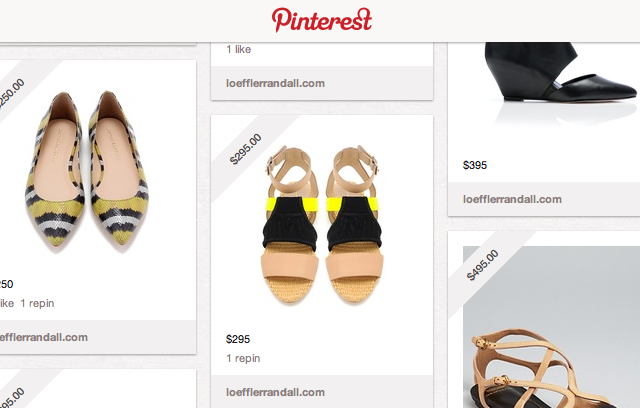 A new study provides insight into whether it’s a good idea for brands on Pinterest to provide price tags on merchandise and products they post. Our friends at Mashable have gotten the data from the new analytics startup Pinreach and Josh Yang, a Harvard Business School MBA candidate. In Pinterest Tips for Businesses, we’ve outlined the importance of brands and businesses to tread carefully when it comes to over-advertising on the site, and the new numbers support that line of thinking.
A new study provides insight into whether it’s a good idea for brands on Pinterest to provide price tags on merchandise and products they post. Our friends at Mashable have gotten the data from the new analytics startup Pinreach and Josh Yang, a Harvard Business School MBA candidate. In Pinterest Tips for Businesses, we’ve outlined the importance of brands and businesses to tread carefully when it comes to over-advertising on the site, and the new numbers support that line of thinking.
The study shows that when individual users share price tags, there seems to be no real drop in the number of re-pins, mainly due to the fact that the sharing is directed toward friends and followers. However when brands begin pushing prices on their own merchandise, the effect is seen to be much more detrimental, with average re-pin numbers rapidly declining. One Pinterest brand’s site dropped from an average of 136 re-pins to only 55 re-pins when a price tag was attached. A major group-buying site fared even worse, averaging 0.2 repins on pins marked with price tags.
In short, Pinterest users simply want to avoid being harassed by companies pushing advertisements, as ads have dramatically increased on most other major social media sites. Users therefore tend to shy away from sharing anything that looks like a direct ad soliciting potential customers.
Bottom line: It’s in a business’ best interest to nix the price tags on Pinterest. A much more effective idea? Provide users with enough information so that they can find the item and purchase it elsewhere (linking back to your website, for example). This way, your product is more likely to be re-pinned across the network. Leave it to Pinterest users; they will provide all the advertisement you’ll need!


